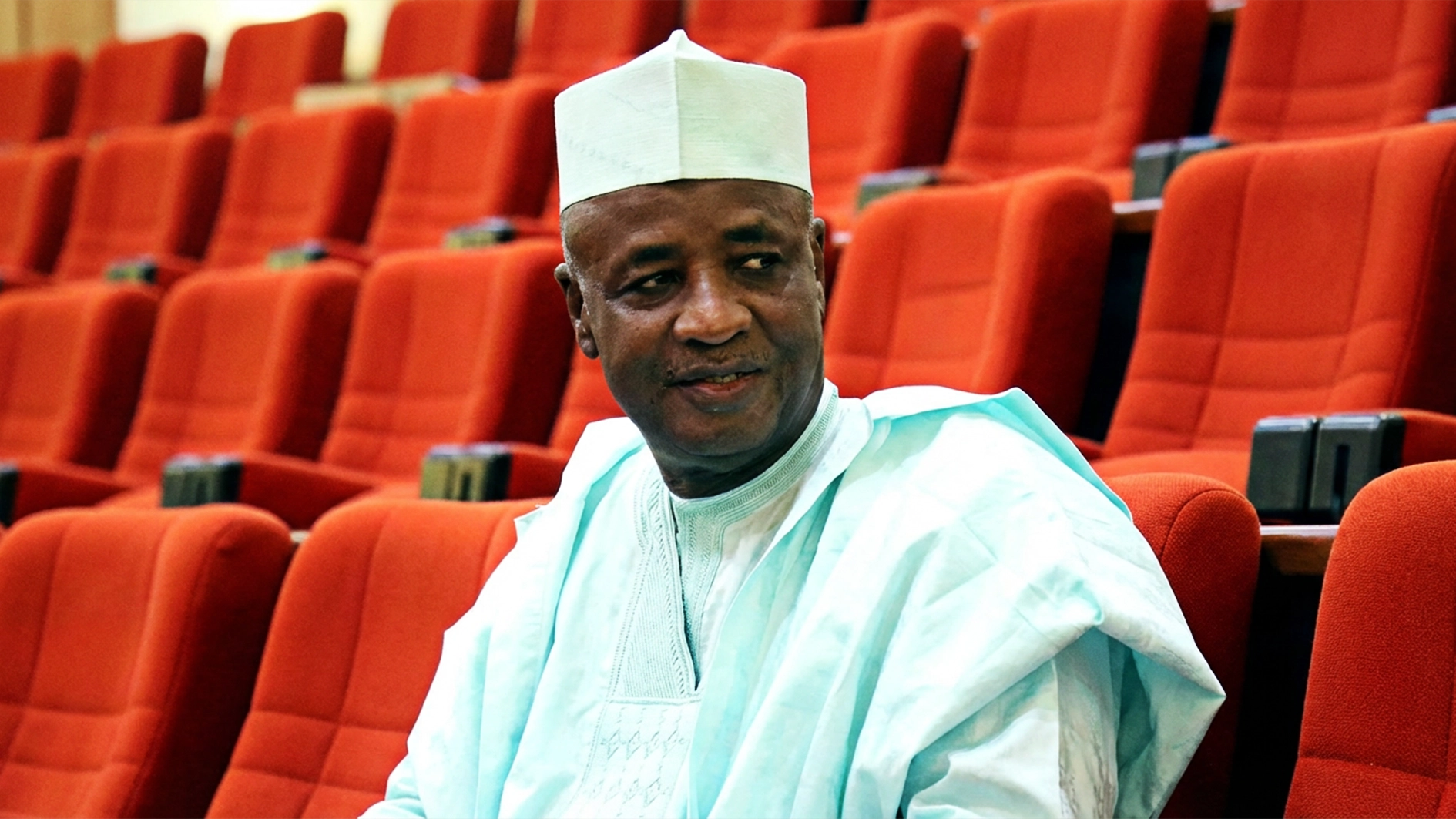 Teachers are the architects of society, shaping the minds of future generations while instilling critical thinking, values, and skills necessary to navigate an ever-changing world. A research paper published in Research Gate refers to educators as the unsung heroes who mold lives and communities. In a world rapidly evolving due to technological advancements and societal shifts, the importance of teachers has never been more significant.
Teachers are the architects of society, shaping the minds of future generations while instilling critical thinking, values, and skills necessary to navigate an ever-changing world. A research paper published in Research Gate refers to educators as the unsung heroes who mold lives and communities. In a world rapidly evolving due to technological advancements and societal shifts, the importance of teachers has never been more significant.
However, despite their importance, the world is facing a growing teacher shortage that poses a serious risk to education and, by extension, the future of global development. UNESCO reports that approximately 69 million new teachers are needed by 2030 to achieve universal basic education. This shortage is further exacerbated by increasing burnout, low wages, poor working conditions, and inadequate support systems. In Africa, the situation is particularly dire, with countries like Nigeria struggling with large class sizes, outdated resources, and insufficient training opportunities, making it difficult for teachers to perform their duties effectively.
The 2024 Teachers’ Appreciation Day is centered around the theme Valuing teacher voices: Towards a new Social Contract for Education, recognizing the growing need for systemic change and sustained investment in teacher development, mental well-being, and educational resources to strengthen their ability to deliver quality education in an ever-changing world.
On how can this be achieved, and what challenges must be addressed by relevant stakeholders, the teacher shortage crisis: A global and local perspective, the crisis is multifaceted and influenced by several factors. Globally, teaching is becoming an increasingly less attractive career option due to stagnant wages, limited career growth opportunities, and high-stress levels. The World Economic Forum highlights that teacher burnout, coupled with a lack of resources, has led to an exodus of educators from the profession. The situation is particularly alarming in low- and middle-income countries, where infrastructure challenges compound the problem. Reports from the Global Education Monitoring Report and The Wall Street Journal also support this.
In sub-Saharan Africa, for example, Countries like Nigeria face particularly acute challenges, including lack of access to modern teaching tools, and limited training opportunities. As a result, Nigeria grapples with a shortfall of qualified teachers, particularly in rural and underserved areas. According to the Nigerian Union of Teachers, classrooms in the country often exceed the recommended student-to-teacher ratios, with some teachers managing classes of over 100 students. This not only diminishes the quality of education but also places immense pressure on the existing teaching workforce, increasing the likelihood of burnout and attrition.
This shortage is more than a logistical issue. It is a significant societal challenge that risks undermining the very foundations of education. If not addressed, the gap in teacher supply could hinder educational progress, widen inequality, and stall economic growth, as countries struggle to produce a skilled workforce.
Addressing the teacher shortage: pathways to sustainable solutions, while the scale of the teacher shortage is daunting, there are solutions that can be implemented to mitigate its impact. Systemic reform is necessary to make the teaching profession more attractive and sustainable in the long term. This includes increasing teacher salaries, providing better career advancement opportunities, and offering improved working conditions. Governments and educational institutions need to focus on the professional development of teachers, ensuring they are adequately trained and supported throughout their careers.
Moreover, technology can play a crucial role in easing the burden on teachers. By incorporating digital tools and e-learning platforms, educators can manage large class sizes more effectively and provide personalized learning experiences. The integration of technology into classrooms also allows teachers to access new teaching methods and materials that can enhance their teaching.
On a policy level, global leaders are recognizing the need for collaborative action. In 2023, the UN Secretary-General launched a High-Level Panel on the Teaching Profession, which aims to address these challenges by ensuring that teachers receive the necessary tools, training, and support to deliver quality education. This initiative underscores the importance of viewing the teacher shortage not as an isolated issue, but as part of a broader educational and economic challenge that requires collective global action.
BIC’s commitment to educational development and teacher support, BIC has long recognized the importance of education and the pivotal role teachers play in shaping future generations. Through its Writing the Future Together sustainability program , BIC has committed to improving learning conditions for 250 million children by 2025. This initiative is built on a comprehensive approach that goes beyond providing students with the necessary writing tools, focusing on long-term empowerment and capacity-building within educational systems.
For instance, this year, BIC has formed partnerships with education ministries across Nigeria to provide much-needed educational resources. In May 2024, BIC partnered with the Ogun and Lagos state ministries of education to donate over 50,000 writing tools to students ahead of key exam periods and Back-to-School seasons. This initiative also provided teachers with essential materials, helping to alleviate some of the pressures faced by educators in under-resourced areas.
One of the flagship programs under BIC’s CSR framework in West Africa is the Canvas of Change Program, launched in 2023, which focuses on enhancing teacher training and development across West Africa. As part of this program, BIC has trained over 150 educators in innovative teaching methods that foster critical thinking, creativity, and engagement in the classroom. These masterclasses, led by renowned educators like Opeifa Olasunkanmi and Oluwaseun Kayode, were designed to provide teachers with the tools and strategies they need to create dynamic learning environments, even in resource-constrained settings. Similarly, BIC provided teachers with guides to help them incorporate creativity into their learning curricula – a belief deeply rooted in BIC’s approach to education.
In 2023, BIC partnered with 1-Million Teachers and Phenomenon-Edu Impact to help bring together over 260 educators in Abuja. This event focused on integrating digital tools into the classroom, with an emphasis on enhancing teacher efficiency and student engagement. Adeyemi Ojo, BIC’s Business Development Manager, highlighted the importance of continuous professional development and the need for teachers to adapt to the demands of a global economy.
BIC’s collaboration with the Let It Shine Academy (LISA), a non-governmental organization dedicated to providing free, high-quality education to marginalized children, underscores the company’s broader commitment to educational equity. By donating teaching materials and learning resources, BIC is not only supporting students but also ensuring that teachers in underserved communities have the tools they need to succeed.
On a call for collective action, addressing the global teacher shortage requires collective action from governments, the private sector, and civil society. With the heightened effects of the global teacher shortage crisis, immediate measures must focus on improving wages, reducing burnout, and providing continuous professional development. Governments must prioritize funding and policy reforms that foster environments where educators are valued, supported, and equipped with the necessary resources to meet modern-day educational demands. This is not just an educational issue but one that impacts long-term economic and social development.
The private sector has a crucial role to play in empowering educators and improving learning conditions and outcomes for students. However, this must be part of a broader, collaborative approach. To secure a better future for education, all key players in the field must commit to developing strategies that empower teachers and invest in the tools, training, and support needed to ensure long-lasting, positive change in our education system.
By Mr Adeyemi Ojo, BIC’s Business Development Manager.






